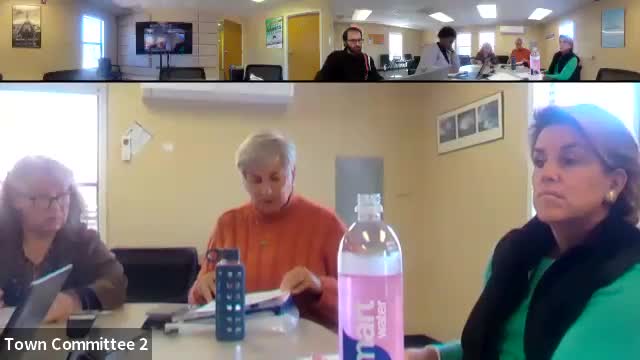Council for Human Services details FY27 grant review schedule, caps and rubric changes
Get AI-powered insights, summaries, and transcripts
Subscribe
Summary
The Council for Human Services reviewed 22–23 FY27 grant applications and outlined review dates, new application caps and rubric changes; recommendations will go to town meeting for final approval.
The Council for Human Services on Oct. 23 reviewed the FY27 human services and substance-misuse grant application pool and outlined a compressed review and approval schedule that the council’s chair said is intended to meet a town request that awards be submitted before year-end.
The council reported receipt of 22–23 applications across the two funding areas and said $650,000 is available for human services and $175,000 for substance-misuse awards. Chair Veronica Golczyk said, “we're working under $650,000 in awards for human services and 175 for substance misuse.” The council highlighted a $100,000 per-application cap and a newly created operational-grant category with eligibility limited to organizations whose annual operating budget is at least $500,000.
The new operational category is intended to support established organizations that seek capacity-building funds rather than start-up program support. The council said program grants will continue under the more familiar rubric but noted the $100,000 cap also applies to substance-misuse requests. Several routinely recurring, small annual requests (the chair cited Martha's Vineyard Community Services as an example) may be reviewed on paper without a required interview.
Council members described the review schedule and next steps: a Contract Review Committee (CRC) meeting to review substance-misuse grants was set for Oct. 24 at 9 a.m.; program-grant reviews are scheduled for Oct. 31; operational-grant reviews and additional CRC meetings are scheduled on Nov. 7 and interviews on Nov. 14 (9 a.m.–noon). The CRC aims to complete deliberations so the Council for Human Services can produce its report for the town finance office by Dec. 31. Final awards will be recommendations placed on the warrant and will not be final until town meeting approval and subsequent signed grant agreements.
Committee members described changes to the scoring rubric used to evaluate applications. The council said the rubric now includes multiple evaluative categories (program focus, partnership, innovation, cultural relevance, financials and a special operations category) and directional rules that require deliberation when final decisions diverge substantially from compiled rubric scores. The CRC currently has six members and the council noted one open seat intended to be filled by an economic-development designee; the council also said it will not proceed with deliberations when fewer than five CRC members are present.
The council emphasized process and reporting rules: grant awards are typically executed as annual contracts and will be paid by reimbursement after reporting requirements are met; towns cannot, under usual procurement rules, pay grantees in advance for the coming fiscal year. Staff said grant agreements set reporting requirements and any limits on how award funds may be used.
Votes at a glance: at the start of the meeting members approved the meeting agenda and accepted minutes from previous meetings by roll call. The meeting record shows affirmative roll-call votes from Suzanne Keating, Amanda Wright, Sue Infinan, Deborah Guzman and Chair Veronica Golczyk for each item.
